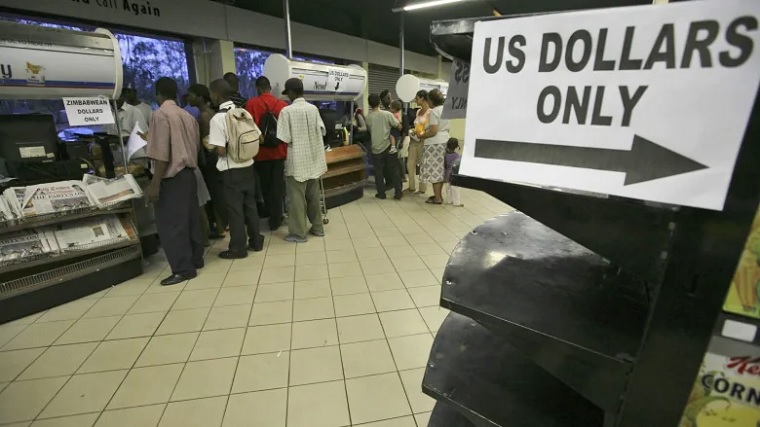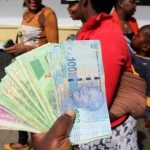What makes matters worse is that there are now shops that do not take the local currency. If reports are to be believed, they say Government has given a go ahead for school fees to be paid in USD. My question Minister is; where are our people supposed to get the USD to transact with? Seeing that the shops now refuse local currency and only trade in USD and also seeing that school fees have to be paid in USD, where do our people access this USD from?
THE DEPUTY MINISTER OF FINANCE AND ECONOMIC DEVELOPMENT: (HON. CHIDUWA): Thank you Madam President, I would also like to thank the Hon. Sen. for asking a pertinent question regarding prices. I would like to say that for our nation, pricing and inflation are issues which can be controlled if our industry is running and there is production and exporting instead of importing products. The obtaining situation is that as a nation, the greatest challenge we have is the escalation of prices. Why are prices rising every day? The first thing is, because we have a volatile exchange rate. If we look at the two exchange rates, the official exchange rate which comes from the auction system and the parallel market rate which happens in the black market, the parallel market rate happens when we look at the basic fundamentals being flouted. If we look at the situation from November to December 2018, as government, we resolved not to borrow from the RBZ. There was no recourse from the RBZ, which is a situation in the past that was contributing to the escalation of prices. We know that our nation is under sanctions and we decided to live within our means. We are running a balanced budget and when you look at our income and expenditure, there is not much difference from 2018. We have not exceeded 3% deficit but we have a budget deficit of 1.3% in line with the agreed targets. Looking at what we are getting as foreign currency, we have a current account surplus. These are basic fundamentals which determine the exchange rate but why is the exchange rate rising? This shows that there is economic speculation which is the major problem because there are people who believe that trading in foreign currency is the business that we should be seized with but as a nation we are supposed to produce goods and services and not parallel market activities. So, the biggest challenge is the parallel market.
So what have we done as government to control price escalation? I did mention that they rise because of imported inflation like what is happening in Russia and Ukraine. As Government, I am sure you heard a Presidential Policy Statement which says let us look at pricing for those who are developing roads, dams, airports and other projects. We noted that the challenge that we faced was the forward pricing where people charged an anticipated price surmised on when they would complete their projects factoring in the exchange rate for forward pricing and government has moved to manage money supply growth which is at zero percent. Currently, people may be saying they do not want the Zim-dollar but everyone is looking for it but it is not readily available because as Treasury and monetary authorities, we went and focused on money creation. Everyone has the US dollar and wants to convert it to the Zim-dollar which is scarce. The rate on the parallel market has drastically gone down. Some are using 600 as the exchange rate. On Tuesday, the auction rate was 550 and on the parallel market it was 600. There is a small discrepancy between the rates but you find some using extreme rates. We will continue holding the money supply. We have created demand for the Zim-dollar, so I do not know where this is coming from that there are some people who are not having access to money. There are some shops who are not taking the US dollar because of its strength. It affects the growth of business and we believe that in the medium term we will unite on the stability which is prevailing.
Continued next page
(146 VIEWS)



Pingback: Zimbabwe govt says going after retailers demanding payment in US dollars - The Zimbabwe Mail - Zimbabwe Focus News | ZimFocus News